
Hello and welcome to Montana Classical College. Today I’ll be discussing Shakespeare’s The Tempest. This is part of our course, Shakespeare as Political Philosopher. Previously I covered Much Ado about Nothing with King Bolingbroke and then we did a 5 part series on King Lear. He won’t be with me this time, but I did listen to a helpful conversation that he recorded with Athenian Stranger that I will link to the page. I hope to have him back soon! Additionally I did a space on X with Rewire the West and Athenian Stranger which I also learned a great deal from.
I’ll start with a summary / overview of the play, then I’ll briefly bring to your attention an alternative reading of the play that is worthy of your attention but which I don’t subscribe to, and then I’ll offer a reading of the play that shows it be Shakespeare’s most Socratic play.
I. Introduction
Summary of the Play:
The main character, Prospero, used to be the Duke of Milan. He prized studying the liberal arts over ruling so he allowed his brother, Antonio, to govern the affairs of Milan, though Prospero kept the title. Antonio turned to the King of Naples for help in overthrowing Prospero. Prospero and his daughter, Miranda, find themselves on a nearly uninhabited island. There is a monster, Caliban, and a spirit with great powers, Ariel, both of whom Prospero rules over. By chance, Antonio and Alonso are returning from a wedding in Tunis, and Prospero, with Ariel’s help, brings their ship to the island through a great tempest.
Three storylines emerge that eventually converge in the final scene.
1) Alonso, Antonio, Sebastian, Gonzalo, and a couple of others are on one part of the island. At one point, all but Antonio and Sebastian fall asleep, and Antonio exhorts Sebastian to kill his brother Alonso and so become the king of Naples. This attempted coup falls short in light of Ariel’s intervention.
2) Stephano and Trinculo encounter Caliban. Caliban treats Stephano like a god because of his liquor and gets them to agree to kill Prospero so that Stephano can take over as ruler.
3) Ferdinand, the son of Alonso, is isolated from all the rest and immediately falls in love with Miranda. Prospero makes him work for her hand, lest “too light winning make the prize light.”
At the end of the play, Ferdinand is engaged to Miranda; Alonso feels repentance for his role in usurping Prospero; and Prospero makes it clear to Antonio and Sebastian—who don’t feel sorry at all—that he has dirt on them from their failed attempt to kill Alonso. The play closes with a soliloquy from Prospero that might represent something close to Shakespeare himself stepping onto the stage, in a play that is nearly the last one that he wrote.






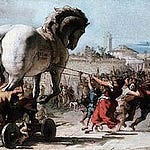


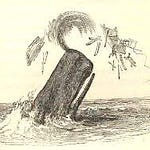
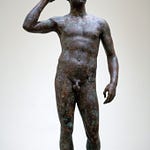
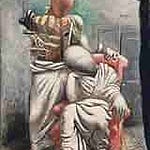
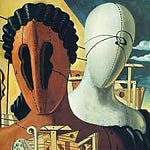
Share this post